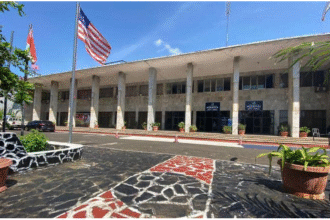FREETOWN – A known labor market policy and programs professional has called on countries in Western Africa to focus on addressing unemployment and workforce development challenges as well as invest in industry innovation activities.
Jones N. Williams, a former State Administrator of the U.S. Bureau of labor Statistics programs and labor market analysis and information in the State of Maryland, said, “Unless the governance system in Western Africa prioritizes and deals with the question and issues of joblessness, skill gaps and mismatches, as well as pushes toward innovation in industry sectors in view of the strong impact and dominance of today’s knowledge-based economy, the sub region will continue to remain vulnerable to the dominance of extreme unemployment and its associated risks”.
According to the World Bank, West Africa presently faces significant unemployment challenges, particularly among youth, with a large number entering the workforce annually while only a fraction finds formal jobs.
The region’s unemployment problem is exacerbated by high population growth, rural-urban migration, and a lack of diverse economic opportunities, the bank maintained.
Williams said key challenges to unemployment in the sub region include the following:
Youth Unemployment:
A substantial portion of the population in West Africa is young, and a large number of them enter the labor market each year. However, the number of formal jobs available is limited, leading to high unemployment rates, especially among young people.
Informal Economy:
A large percentage of West African workers are employed in the informal sector, where jobs are often precarious, poorly paid, and lack social security benefits.
Rural-Urban Migration:
Many young people migrate from rural areas to urban centers in search of employment, but the cities are often unable to absorb the influx, leading to high unemployment and underemployment.
Lack of Economic Diversification:
Many West African economies rely heavily on primary commodities, which limits job creation in other sectors.
Low Productivity:
A significant portion of the labor force is engaged in low-productivity sectors like agriculture, which further exacerbates the problem of unemployment and poverty.
Williams said West African nations and leaders should recognize the importance of addressing youth unemployment and work to develop inclusive policies and governance systems.
He called on policy makers and program leaders to focus on facilitating and enhancing an enabling environment that would allow the private sector and businesses to create more and better jobs, particularly for young people. This should include support for public works programs, support for small businesses, support for agriculture, and promoting digital infrastructure as well as support for capacity building and training in information technology, science, engineering and research.
Williams also emphasized the need for skills development and job training to ensure that young people have the skills needed to find employment and compete in the global labor market.
The labor market professional said the impact of unemployment is vast. Apart from leading to poverty and inequality, as many unemployed people struggle to make ends meet, unemployment can also lead to social unrest, crime, and instability as well as have a negative impact on economic growth, as a large portion of the population is unable to contribute to the economy.
He said possible solutions to addressing the extreme unemployment situation in the sub region include
Promoting economic diversification:
Diversify the economy beyond primary commodities to create more jobs in other sectors.
Invest in education and skills development:
Equip young people with the skills they need to find employment.
Support small and medium-sized enterprises (SMEs):
SMEs can be a major source of employment, so it is important to support their growth and development.
Improve infrastructure:
Invest in infrastructure, such as roads, electricity, and telecommunications, to facilitate economic activity and job creation.
Strengthen regional integration:
Regional integration can lead to increased trade and investment, which can create more jobs.
Williams said the question of job creation is urgent because the current levels of unemployment among young men and women in West Africa are a ticking time bomb for the region and also beyond. He said in some countries, such as Sierra Leone, the number of young people lacking proper work exceeds 50%. This is not just a social and psychological disaster but also a huge wasted economic asset.
For individuals, the loss of employment may often lead to serious financial instability and can have severe psychological effects, including stress, anxiety, and a diminished sense of self-worth. The lack of a regular income makes it difficult to meet basic daily needs and can contribute to a decline in overall quality of life.
On the general level, extreme unemployment can result in reduced demand, consumption, and buying power, which in turn may cause lower profits for businesses and can lead to budget cuts and workforce reductions. It creates a cycle that goes on and on that is difficult to reverse without some type of intervention, he further stated.









